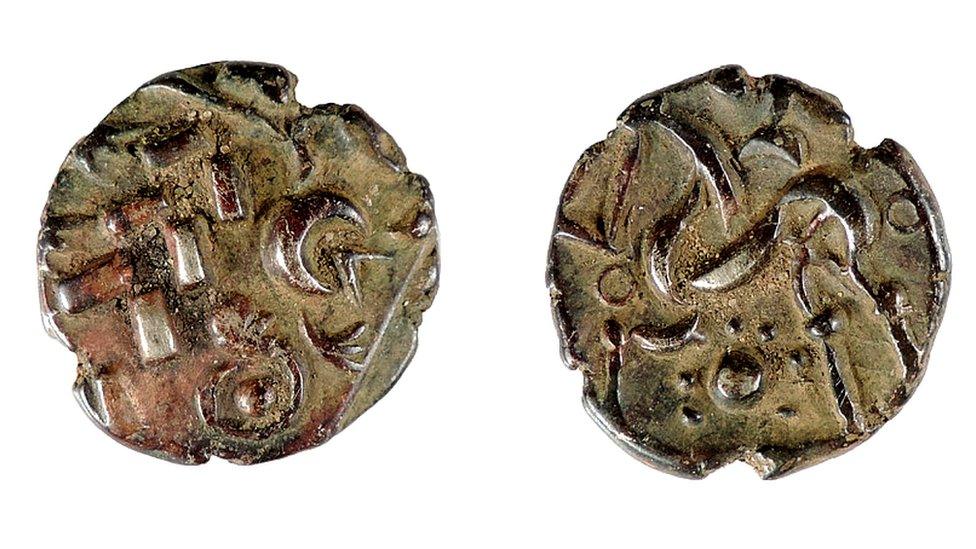Blythburgh hoard: Iron Age gold coins declared treasure
- Published
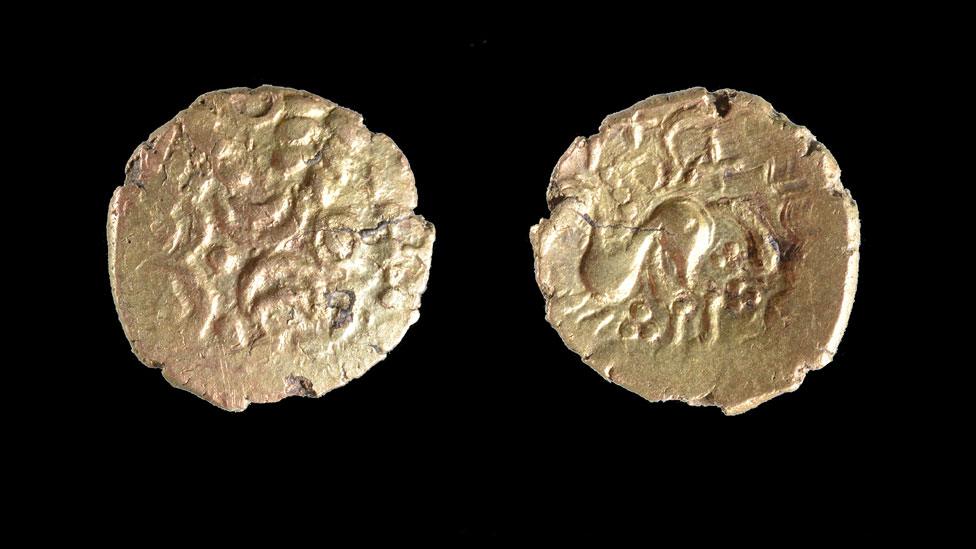
The collection of coins was found near Blythburgh
A hoard of 19 gold coins from the Iron Age unearthed in Suffolk was a "really unusual" find for the area, an expert has said.
The collection was found on land near Blythburgh in February last year.
Suffolk coroner Nigel Parsley was told some of the coins had features linked with those traditionally associated with the north Thames area.
Archaeologist Dr Anna Booth said it showed "cross cultural interaction" between nearby counties at the time.
Mr Parsley declared the coins as treasure.
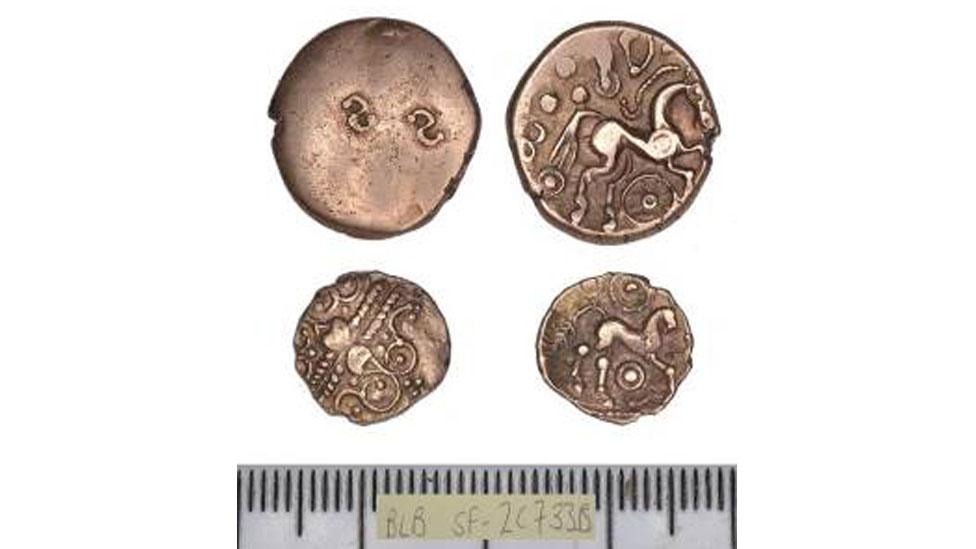
Dr Anna Booth said the coin with two S-shapes was "unusual"
Dr Booth, a finds recording officer for Suffolk County Council, said it was a "really unusual hoard for East Anglia".
She said many of the gold staters and quarter staters were attributed to pre-Roman tribal leader Addedomaros, King of Trinovantes.
Dr Booth said coins associated with the Celtic ruler were more common in Hertfordshire, Essex, Bedfordshire, Buckinghamshire and Cambridgeshire, with relatively few in Suffolk.
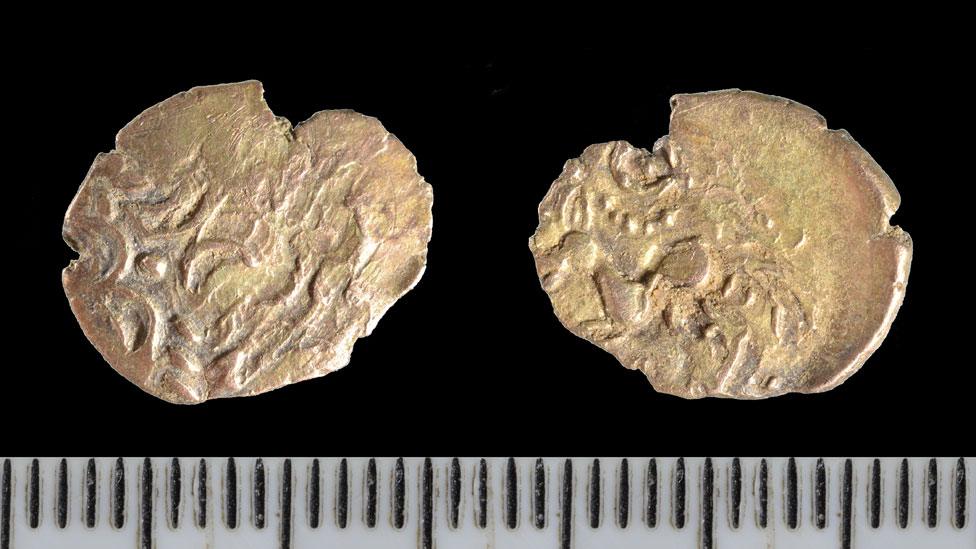
Dr Booth said there had been "a lot of interest" in the coins
One of the coins was previously unrecorded and "not seen before", Dr Booth told the inquest.
She said some featured a "flower type" design that "we don't see very often" and another featured two "unusual" reversed S-shapes.
The coins, many of which dated to 45-25BC, were likely to have been deposited after AD20, she said.
A metal detectorist found the hoard within a 10-15m (32-49ft) square, the inquest heard.
It is not yet known which museum will take the coins but Dr Booth said there had been "a lot of interest".
- Published31 January 2020
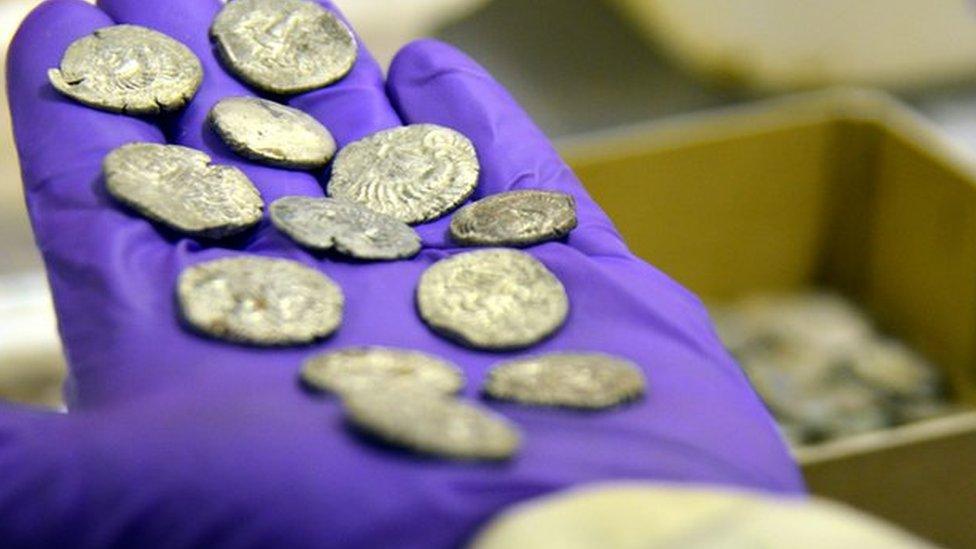
- Published24 August 2017
